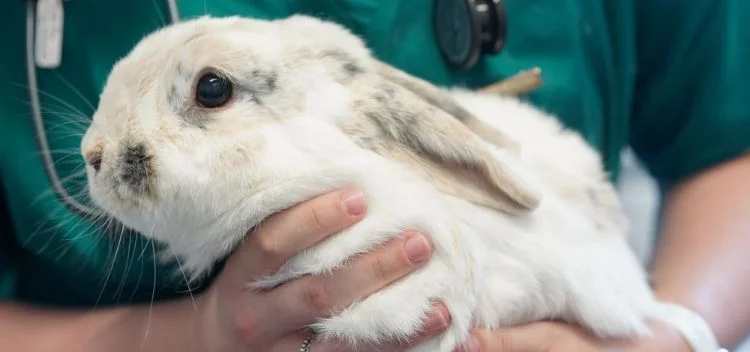
Caring for your pet rabbit
At Rowan Vets, we provide a range of rabbit health services. These include rabbit vaccinations, neutering, weight monitoring and nutritional advice, as well as geriatric health checks.
Andrew Moore is an experience exotics veterinary surgeon and can advise you on all aspects of rabbit care and will be more than happy to help you.
Have you just bought a rabbit and want to get prepared? Download this helpful guide HERE to help you get set up and get into good habits when it comes to looking after your bunnies and keeping them happy and health.
For more information on caring for your rabbit, click HERE
Home-care advice for rabbit owners
Rabbits are prey animals and their natural instinct is to run and hide. For this reason, they need gentle handling from an early age to become comfortable around humans.
Offer your rabbit bolt holes/hiding places to help them feel safe – open spaces with no protection will cause your rabbit to feel under threat.
Rabbits that show aggressive behaviour towards you and/or other pets may often be in pain, distress and/or suffering emotionally (stress). If this happens, it’s wise to get them checked over by one of our Vets.
Pet rabbits often lack mental stimulation and can become bored, which can lead to behavioural problems and poor health. To keep your rabbit mentally stimulated and physically active, our rabbit-loving team at Rowan Vets recommend creating a ‘wild’ environment for them at home. This will help them tap into their natural wild behaviours and have some fun.
Try adding these items to your rabbit’s hutch and run:
- tunnels
- tree stumps
- unsprayed twigs
- compost for digging
- platforms for hiding under and climbing on
- food scattered on a tray or the floor of their home so they have to forage for it
Rabbits quickly become bored of toys so rotate items regularly to keep them interested. They love to dig, so you may want to provide a child’s sand pit filled with earth or sand to prevent damage to the garden.
Rabbits are very protective of their territory and will mark out anything they see as theirs using chin secretions, urine, and droppings. These markings also help them to feel reassured as their environment smells familiar.
Most rabbits will do better in pairs and can get lonely on their own. Talk to our Rabbit Vets and Nurses about the best rabbit pairings or any other questions you may have.
We’ve also created a range of helpful rabbit factsheets



